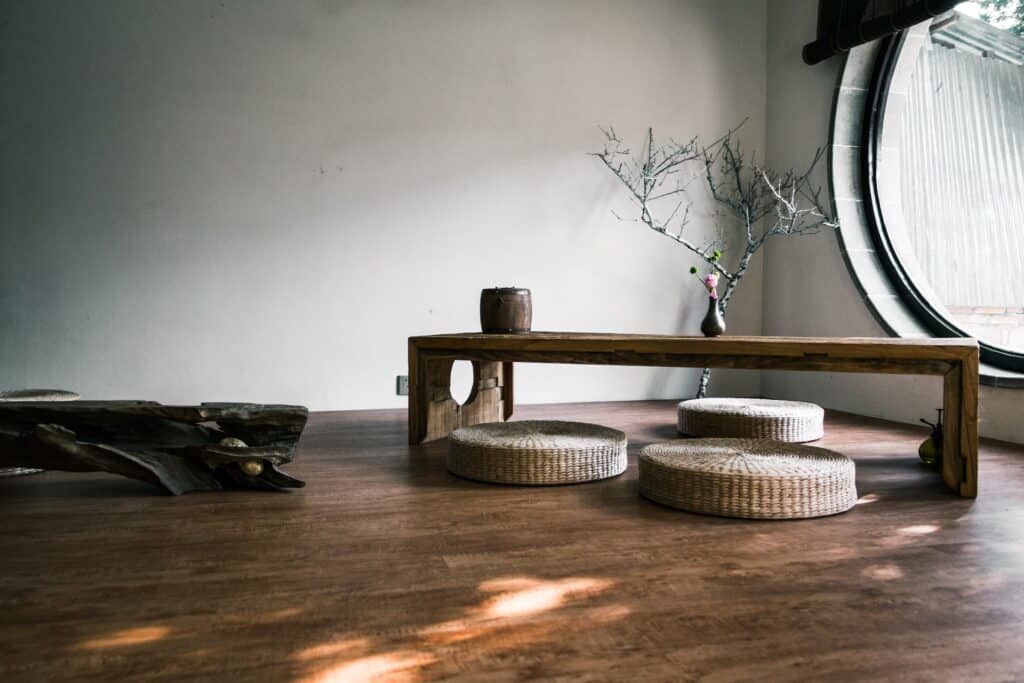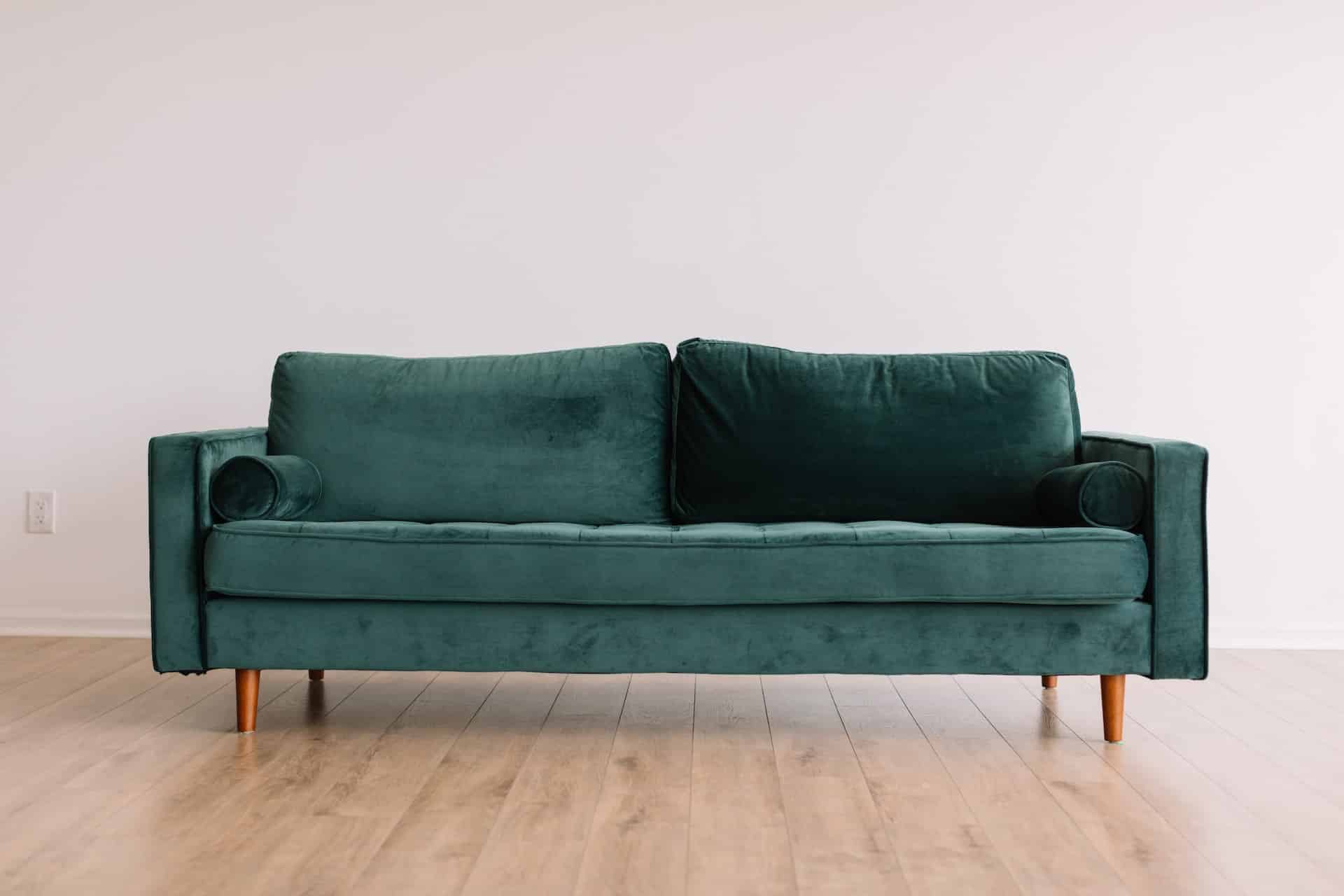I really dislike furniture.
There is no purpose behind most furniture that can’t be met through more utilitarian means, say a box or a log. Overwhelmingly, the decision to purchase furniture turns on form over function, style over necessity.
And as with fashion, decorating styles change. That trendy coffee table is now dated and has to go. Upgrade our space and all our perfectly serviceable accoutrements must make way for a new vision.
Each year, Americans throw out more than 12 million tons of furniture, creating mountains of solid waste that have grown 450 percent since 1960, according to the Environmental Protection Agency.
https://www.nytimes.com/2022/10/31/realestate/fast-furniture-clogged-landfills.html

That’s horrifying enough, but it gets worse as you trace the manufacturing chain even further back where the resources for cheap furniture are gathered and processed, often using materials that are not readily biodegradable and cannot be easily recycled. The New York Times article referenced above goes on to cite figures and quote experts about how wasteful current industry practices are and we are encouraged in the end to buy items of better quality so that our purchase will last longer.
The capitalist solution requires acquisition.
What if we just didn’t buy the items?
Space is sacred. May the peace and blessings of God be upon him, we have been admonished by the Prophet Muhammed:
O people, pray in your homes- for the best of prayers are a man’s prayers in his home, except the obligatory prayers.
Bukhari and Muslim
How often are we in spaces where couches and chairs must be shifted around or otherwise relocated in order to make room for the primary obligation in the life of a Muslim? And once we’ve opened up the floor space, we might well be facing some mirror or other distracting (but stylish!) wall-hanging that does little to help us maintain focus. The cluttering of space with impediments that might complicate prayer with one’s family or guests is a choice that really needs to be unpacked before the full offense of the decision is realized.
Because for most, the decision to furnish one’s home is grounded in two unseemly motives: comfort and ostentation.
I’ll allow that you are reading the words of a curmudgeonly misanthrope. You might reasonably wonder, “What’s wrong with feeling comfortable?”
Author Michael Easter calls it “comfort creep” and says of his book, The Comfort Crisis:
. . . as we experience fewer problems, we don’t become more satisfied. We just lower our threshold for what we consider a problem. We end up with the same number of troubles. Except our new problems are progressively more hollow.
Avoiding comfort creep needs to start early. The sages of Islam have warned us to avoid eating our fill. Imam al-Ghazali has cautioned against sleeping in a soft bed. We should get our children used to this so that the generation to come does not inherit and perpetuate the chronic dissatisfaction that comes from having it too easy. We need to reclaim and honor “floor culture,” a hallmark of traditional Muslim societies as well as much of the eastern world, as in this lovely article about Korean floor culture.

Posture and range of motion are the two early casualties of our obsession with furniture. Pretty soon, we’re buying ever more adaptive solutions with lumbar support and reclining functionality to prop up our stiff, bent, and bloated bodies. The entire field of ergonomics is about fitting a job to a person. It has nothing to do with promoting healthy body mechanics per se. Rather, it’s the science of promoting efficiency in the execution of a particular task in order to minimize the repetitive use injuries prevalent in the modern workplaces.
How helpful is ergonomics for the typical office worker? There might be some reduction in workman’s comp claims, but if you’re spending most of your day in that comfy chair, you are still in trouble:
A 2011 study documented 800,000 people and their sitting habits. The study found that people who sit the most, compared to people who sit the least, have a greater risk of disease and death:
https://theheartfoundation.org/2019/08/10/is-sitting-the-new-smoking/
- 112% increased risk of diabetes.
- 147% increased risk of cardiovascular events like heart attack and stroke.
- 90% increased risk of death from cardiovascular events.
- 49% increased risk of death from any cause.
In addition to the health issues, I submit that most furniture just isn’t helpful.
A lot of furniture is use-specific. Most of us don’t sleep on our desks or eat off the chair. Because of this, furniture comes to define the purpose of a room, actually robbing that space of possibilities. If you put a bed in a room, it is no longer a space to enjoy tea with guests. If you mount a television to the wall with a large wrap-around couch facing it, this is no longer a safe place to write your novel. You will soon be overrun with family members eager to congregate in what has been appointed a communal area.
Get rid of the furniture and every room becomes filled with opportunities to eat, sleep, play, exercise, entertain, pray, create, and converse.
In our selection of furniture, we tend to make our choices based on prevailing aesthetic preferences. This is unavoidable if we are going to buy new furniture. The retail chains have buyers that make sure the available choices are chic by contemporary standards, tailored to that particular outlet’s target demographic. We are ushered into ostentation even as we imagine that we are making practical, even frugal choices.

This is one of the reasons we like to backpack. Spending time outside with only a few essentials is an immediate reminder of how little we need and how refreshed we become when we move our bodies and expand into open space. It’s a physical, mental, emotional, and spiritual uncoiling that must be experienced to be fully appreciated.
There are a few items that actually expand the possibility of a space. Organizational pieces like chests or shelves or cabinets are important and functional, and can be made quite beautiful. After all, advocating for an absence of furniture is not an invitation to make a mess.
Increasingly, abstention is at the heart of revolutionary action. What if we didn’t fill our home with furniture? What if we embraced floor culture and clean, open spaces electrified by possibility became the hallmark of the Muslim domicile?
We can all start on that process by just getting rid of a few things.
But a word for those who similarly loathe furnishings! It may be that you share a space with others who disagree. So be it. This is not the hill to die on.
The nesting instinct is a significant one among the domestically inclined. One only courts futile misery to challenge this. Better to spend time away from the offending chattels long enough to avoid becoming preoccupied with what is beyond our control.
Instead, we can rejoice in the knowledge that our graves are unfurnished.
Leave a comment below for posterity or join us in the D&T Chautaqua Discord to discuss this post with other adventurous spirits from around the world.

Really really good points and wonderful ending!
This is a little more general, but I’ve recently noticed just how much stuff I personally have, and honestly how much I dislike it. It’s like some of the reasons you mention here, the space it takes up can sometimes be unnecessary. Even specifically with something like a sofa, just looking at one recently got me thinking, “this would be so hard to move.” And then you feel that rather that u sitting on it, the weight of responsibility sits on your shoulders. But back to my point, we just have so much stuff. Over the years, I’ve accumulated clothes I’ve worn throughout my childhood, papers from school, and a whole lotta clutter and random things. The urge to just slim it all down into something more simple grows each day. And inshallah I plan to crack away at it all little by little.
Another cool thing you mention is how when you get rid of furniture, a room can become so full of opportunities rather than a set thing. That’s actually a great point. An empty room is SO exciting, because so many different things can happen in it! I really like this because I love the idea of potential. That’s why I love seeds, mostly tree seeds, because of the amount of pure potential in them. A coast redwood seed the size of a tiny tomato seed has the potential to literally become the tallest and amongst the largest trees in the world. Just thinking of that and then holding a tiny seed is so insane it’s hard to wrap your mind around. And there are so many examples of things with potential that really get me going. Like people too. Just the right ingredients, and a kid could grow to do truly remarkable things.
But an empty room! You could sit with friends, eat a meal, play a game. You can bring cushions out and set them up however you want! Those who have it hard on their knees can get a bunch of cushions if they wish, and all the help from the community of buddies around them.
I recently got to go to Egypt to finally see family. And one thing that I really liked at my uncles house versus our own was the dinner table they used. Rather than a big ol permanent thing with chairs, they have a smaller circular table with little stubs for feet and about 3 or less ft diameter that you can just roll in. They called it a tublaya (it looks like the little table in the floor culture article, but circular). Maybe it’s called differently in other cultures. And then everyone sits around it and you bring in the food. And then when the meal is over, you just roll it out into some corner. And your space is back!
A nice mat can work similarly I bet. I like how many cultures around the world already have some version of this. Like floor culture, it makes me think how I’ve often accidentally found just how comfortable the floor can be for sleeping.
Masha Allah
Next time YOU’RE writing the blog post : )
That trip to Egypt sounds like it was an awesome opportunity to shift and sharpen perspective. Sometimes just seeing how other people do things is enough to recognize that our way isn’t the only way- or even the best way!
Some
How I miss this one but was able to get it here from our new channels.
Once again brother you have enlightened us on so many things here .
I was always amazed by some homes that had to have furniture in every nook and cranny of the rooms.
The repeated amounts were actually quite funny.
I always wished I had the space to just drive around and collect all the furniture that are thrown out every year by Americans.
Furniture that would make someone in a third world country so happy to have just one piece
I have to say since not being a home owner I have limited the furniture collection to bare minimum
1 bed
1 love seat as it’s called here
1 folded table with two chairs
That’s my list lol.
A good place to collect some really good stuff is around a college campus and surrounding areas. The kids throw out everything once they are done lol. Thanks again for this article